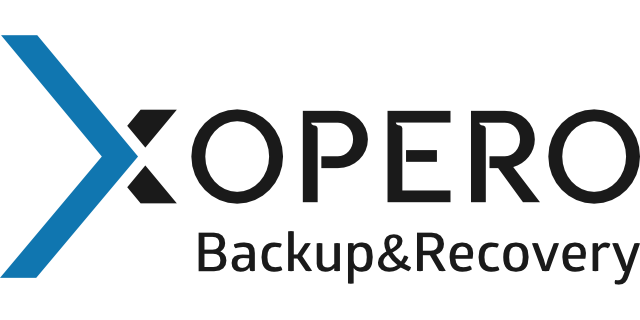
Endpoints Backup – Best Practices. Comprehensive Guide for 2024
In today’s rapidly evolving digital world, where data forms the lifeblood of every enterprise, its protection has become a priority. From personal customer information to confidential business data, the loss of this information can be catastrophic. Endpoints backup plays a crucial role in the strategy for protecting infrastructure, enabling companies to restore lost data due to system failures, cyber attacks, human error, or other events.
The Rise of Cyber Threats
Analyzing the latest statistics, we can notice that the cost of a global data breach has risen to an average of 4.45 million dollars, representing a fifteen percent increase over three years. Moreover, the average cost of a data breach per employee was 165 dollars, one dollar more than the previous year. Such data highlight how costly inadequate security of infrastructure can be, especially in the context of the increasing number of ransomware attacks and supply chain breaches. At the same time, the problem of losing confidential information affects almost every industry sector, indicating a universal need for effective backup strategies. Reports indicate that nearly 70% of small businesses close within a year of a major data loss, and 33% of all folders in an average company are not secured at all. These alarming statistics shed light on the consequences firms may face from breaches and underline the importance of implementing appropriate security measures and backup strategies.
In light of these challenges, best practices for endpoint backup are gaining importance. A key aspect becomes not only securing data against potential attacks but also ensuring that, in the event of a breach, data can be quickly and effectively restored. Implementing a strategy based on the latest technologies and best practices is therefore essential for protecting digital assets and ensuring the continuity of organizations in the digital world of 2024. In this context, Xopero Software presents an advanced, hardware solution for backup and recovery after disasters – Xopero Unified Protection. A device that provides comprehensive data protection for workstations with Windows, macOS, and Linux systems, as well as for Microsoft 365 applications.
Basics of Workstation
Backup Endpoint backup is a key element of every organization’s protection strategy, aiming to ensure the security and availability of data stored on end-user devices, such as laptops, desktops, smartphones, and tablets. Due to the increasing mobility of employees and the growing number of cyber threats, ensuring effective data protection is becoming increasingly important. Below, we present several key best practices for endpoint backup that should be implemented in your organization.
Endpoints Backup – 10 Best Practices
1. Creating an Effective Backup Strategy
Developing an effective endpoint backup strategy requires understanding current business needs, assessing the risk associated with data, and determining which data are critical for the company’s operations. This strategy should include both backup policies and data restoration procedures, specifying how often and in what manner data should be secured.
2. Setting RPO and RTO Goals
RPO (Recovery Point Objective) and RTO (Recovery Time Objective) goals are key elements of business continuity and Disaster Recovery planning. RPO defines the maximum acceptable period in which data can be lost due to an incident, while RTO specifies the time within which services must be restored after a failure. Precisely setting these goals allows for more efficient backup and data restoration planning. When choosing a backup system, it is important that RPO and RTO are as low as possible. Xopero Unified Protection offers system or entire device restoration after a failure in just a few minutes!
3. Automating Backup Processes
Automating the backup process creation is a fundamental element of an effective data security strategy, allowing for regular and consistent backups without the need for constant supervision. Automation minimizes the risk of human errors, which can result in data loss or the creation of incomplete backups. With Xopero Unified Protection, there is the possibility to set automatic backups for files or entire operating systems of laptops and workstations equipped with Windows, as well as for Microsoft 365 applications. This software effectively manages both individual devices and complex physical structures.
4. Encrypting Data in Backup
Encrypting data in backup is crucial for ensuring their security, especially when it comes to sensitive business information or personal data. Encryption effectively protects data from unauthorized access, even in case of loss or theft of the data carrier. For maximum security, your backup solution should: Use the AES algorithm with its own key for data encryption, thus providing the highest possible protection. Encrypt data “at the source,” i.e., before they are sent from the device, ensuring their protection at every stage – both during backup creation and while stored at the destination. Have access to the encryption key only during backup creation and store the key in a different location than the backups, to better protect data from unauthorized access (zero-knowledge encryption, zero trust).
5. 3-2-1 Backup
The 3-2-1 backup rule, recognized as the best practice in managing backups, recommends maintaining at least three copies of data on two different types of media, with one copy being stored off-site. This strategy provides an additional layer of protection against natural disasters and cyber attacks. Despite technological progress and changing data carriers, the simplicity and efficiency of the 3-2-1 scheme remain the absolute minimum that should be done to ensure data security. Additionally, features such as multistorage and replication can facilitate adherence to this rule, providing even greater data security.
6. Scalability of the Solution
Scalability is the foundation of backup systems, but not every system easily adapts to growing needs. It is recommended to invest in solutions that can grow with the company. Key is that the ability to create backups is not limited by the amount of data. If you are starting a business on a smaller scale, it is worth choosing a solution with automatic backup management. As the organization grows, tools facilitating the handling of more complicated systems should become available. Technologies such as incremental backups (only saving changes) and compression can significantly speed up the data securing process and reduce the need for storage space. A useful feature will also be the ability to limit the number of backups performed simultaneously in order to balance the use of network resources. It is important that the chosen backup solution is adapted to the growing demands of your organization, offering technologies that enable effective creation and recovery of data in both simple and complex environments.
7. Compliance with Legal Regulations
Most companies encounter difficulties in ensuring privacy, security, and compliance with legal regulations regarding data storage. The best practice is to choose a data protection partner who has thorough knowledge of compliance and possesses technology that can ensure it. How to recognize a reliable partner in compliance matters? One who is willing to present a table of regulatory requirements and a list of products, services, and technologies that will help meet these requirements. An even better choice is a provider who regularly undergoes an annual SOC 2 Type II audit, ISO 27001, GDPR, and has georedundant data centers, which increases data security and availability.
8. Protection Against Cyber Threats, Including Ransomware
In the face of technological progress and the evolution of cybersecurity solutions, hacker attack methods are also changing. It is not enough to implement only antivirus or basic backup solutions. Focus must be placed on securing the created backups and data stores. Choosing the right backup solution must guarantee comprehensive protection against threats such as ransomware. The ideal tool should prevent the possibility of running malicious software directly from backups, by using non-executable files and immutable storage, thus preventing any modifications to the saved data by unauthorized persons or processes. Additionally, securing access to backup data with advanced authentication mechanisms for the storage increases the level of security against unauthorized access. Implementing a multi-storage system and data replication in different locations guarantees redundancy and increases resilience to failures and cyber attacks, making the backup solution a comprehensive and reliable tool in the data protection strategy.
9. Using Data Retention Policies
Implementing data retention policies is crucial for effective management of endpoint backups, especially in situations where long-term storage of personal data is required, for example in medical facilities, where this period can be up to 25 years. Determining how long data should be stored helps optimize storage resources and ensures compliance with numerous legal regulations regarding data protection. Retention policies should be tailored to the type of data, their importance to the organization, and legal requirements. Key is the use of automated tools for data lifecycle management, which can help in removing old backups according to the established policy, ensuring that only the most important data are stored and protected.
Choosing the right solution for creating Backups and Recovering Data after a disaster
We face a key question: which backup solution for physical environments is best to choose? Undoubtedly, it should be one that offers data recovery options with additional features, such as instant restore, disaster recovery planning, bare metal restore, and any-to-any restore, which are crucial for ensuring uninterrupted business operations. Xopero Unified Protection is a comprehensive All-in-One hardware solution, meeting the needs of companies looking for a reliable, automatic endpoint backup system. It combines backup software with a disk array, archiver, and deduplication device, offering unlimited licenses, automatic updates, technical support, and Xopero Cloud Storage. It provides comprehensive protection for various environments, including endpoints, servers, databases, and virtual machines. Xopero Unified Protection, easy to install and use, with advanced data management features, is the ideal choice for companies seeking a solid backup system. We encourage you to schedule a demo to see its advantages in practice.






